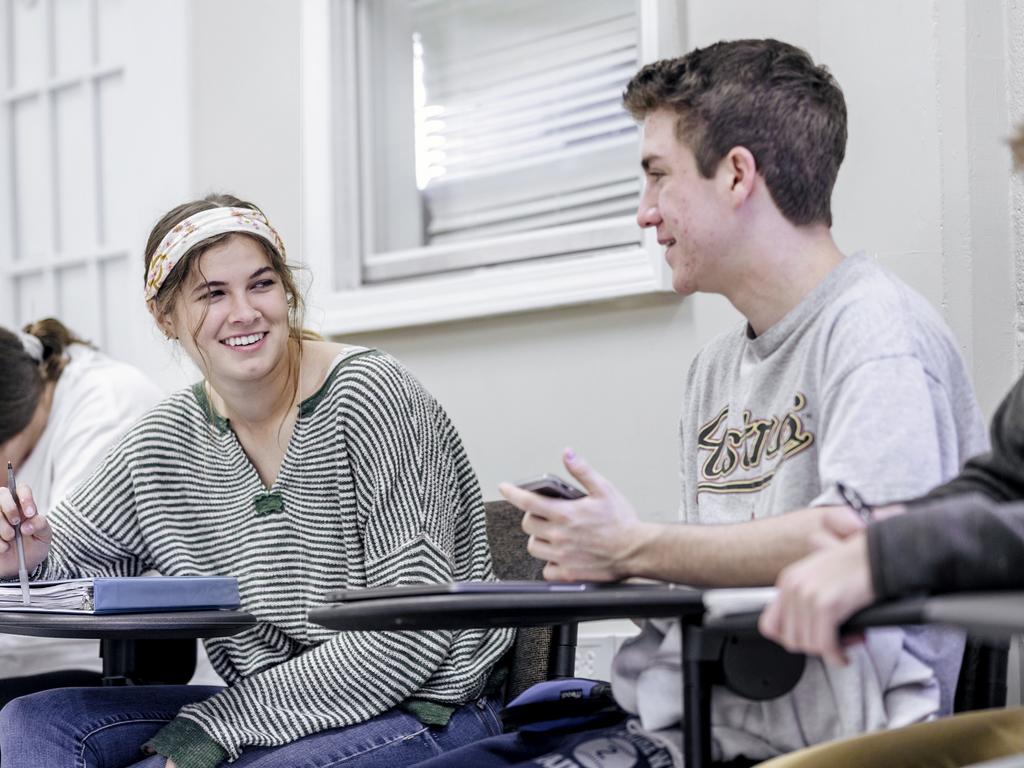Rhodes College will expand its Media Studies Program this fall with a major in media studies. Approved by faculty in April 2021, the new major offers a critical understanding of the history, theory, and production of visual media from film to TV to digital and social media.
Although a minor in film and media studies has existed for more than two decades, student interest and supporting data from research conducted as part of the college’s strategic planning process factored into the consideration of media studies as a major. In addition, the Rhodes Office of Admission reports that prospective students regularly ask about offerings in journalism, communication, and film.
“This new major will directly address that student demand and help us recruit and retain students who are keenly interested in investigating the intersections of historical, aesthetic, and cultural forces that shape our multimedia world,” says Dr. Rashna Richards, professor of English and chair of media studies. “Five students have already declared the major.”
One of those students is Isabel Rodriguez ’22. “Our world is constantly becoming more digitally focused. Media shapes how we think, what we care about, and how we interact with others daily,” she says. “This is largely the reasoning behind why I decided to double major in English and media studies when I heard that the was now in existence. I want to understand how media has such a large impact on our society, as well as how I can positively contribute to the digital world.”
Majors can choose to concentrate on media production or film studies. The program will expand offerings in areas such as communications, journalism, and social media in the near future. Eight out of the 40 required credits for the media studies major must be in courses that focus on media outside the U.S.
Interdisciplinary by design and stressing key components of a liberal arts education, the Media Studies Program is supported by faculty from three divisions—fine arts, humanities, and social sciences—and includes specialists in African, Asian, European, North American, and transnational cinema and media. Courses investigating structures of power and social groups that strive for greater equity are regularly offered.
“What excites me most is that the major’s forward-thinking approach lines up perfectly with our institutional commitments to interdisciplinarity, a globalized curriculum, and career readiness,” says Richards. “It will also allow us to enhance our curricular and extra-curricular partnerships with the city of Memphis."
Rhodes has an ever-growing presence in the city’s film and media community. Students have done internships with local production companies such as Running Pony and True Story Pictures, with film festivals such as OUTFlix, and at nonprofit organizations. Many have had their films accepted into the Indie Memphis Film Festival, with several winning awards. “In addition, local production companies continue to seek out our students for short-term filmmaking projects,” says Richards.
“Having a major in media studies will enhance our curricular offerings for students and advance our strategic commitment to innovative and interdisciplinary learning and scholarship,” says Dr. Katherine Clay Bassard, provost and vice president for academic affairs. “We are excited about expanding our community partnerships and internship opportunities in this growing and diverse field of study.”
After completion of the major’s requirements, students should be equipped with tools for critiquing visual media, the creative capabilities for producing digital art, and practical communication skills for participating in globalized media networks.
